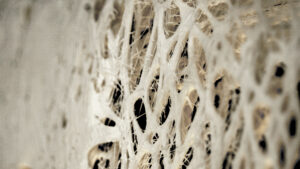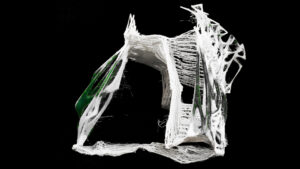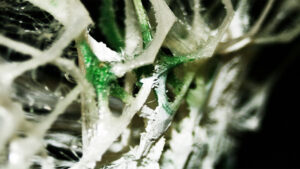CityPortUnit is part of a research-led architectural design master thesis in the Hyperbody research group at TUDelft. The work explores the idea of architectural and artistic innovation through locality by developing a high impact biologic-architectural-computational strategy for reading, negotiating, and influencing specific urban conditions and environments.
Can the spatial components of our cities be seen as entities in synchrony, as nodes of decentralized networks and if so, how does this impact their architectural response to changes in neighboring or distant nodes?
City Port Unit proposes building a biological relationship between the Port and the City of Rotterdam, a showcase for an innovative bio-industry that promises to alter our way of using natural resources.
As algae-culture flourishes in man-made architectural structures, technologies and materials inform and radically impact the way in which technology, architecture and biology are understood. These essential ingredients inform a bio-architectural strategy for empowering local communities by reading, negotiating and influencing local conditions
The project uses Fibrous Assemblages to illustrate the use how fibrous morphologies may bundle, spread, cohere into locally adapted functional or aesthetic features.
Addition and redundancy are explored in self-replicating procedures as computational design techniques and aesthetic references. Architectural artefacts generated by the bespoke agent-based algorithm were materialized utilizing a self-built 3D printer that utilized the biodegradable PolyLacticAcid(PLA) for the production of a complete scale model of the envisaged bio-reactor.
CityPortUnit was first presented during the Hyperbody Master Of Science in the Architecture Graduation Session of July 2014.
The work was awarded the Cum Laude accolade by the TUDelft Master’s Committee.
Author
Serban Bodea, TU Delft, Hyperbody
Tutors
Project Team
Prof. Kas Oosterhuis, Director Hyperbody TUDelft
Dr. H.H. Bier, Dr. N.M. Biloria, Dr. Karel Vollers


